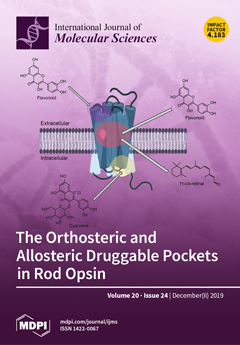Dilated (DCM) and ischemic cardiomyopathies (ICM) are associated with cardiac remodeling, where the ubiquitin–proteasome system (UPS) holds a central role. Little is known about the UPS and its alterations in patients suffering from DCM or ICM. The aim of this study is to characterize the UPS activity in human heart tissue from cardiomyopathy patients. Myocardial tissue from ICM (
n = 23), DCM (
n = 28), and control (
n = 14) patients were used to quantify ubiquitinylated proteins, E3-ubiquitin-ligases muscle-atrophy-F-box (MAFbx)/atrogin-1, muscle-RING-finger-1 (MuRF1), and eukaryotic-translation-initiation-factor-4E (eIF4E), by Western blot. Furthermore, the proteasomal chymotrypsin-like and trypsin-like peptidase activities were determined fluorometrically. Enzyme activity of NAD(P)H oxidase was assessed as an index of reactive oxygen species production. The chymotrypsin- (
p = 0.71) and caspase-like proteasomal activity (
p = 0.93) was similar between the groups. Trypsin-like proteasomal activity was lower in ICM (0.78 ± 0.11 µU/mg) compared to DCM (1.06 ± 0.08 µU/mg) and control (1.00 ± 0.06 µU/mg;
p = 0.06) samples. Decreased ubiquitin expression in both cardiomyopathy groups (ICM vs. control:
p < 0.001; DCM vs. control:
p < 0.001), as well as less ubiquitin-positive deposits in ICM-damaged tissue (ICM: 4.19% ± 0.60%, control: 6.28% ± 0.40%,
p = 0.022), were detected. E3-ligase MuRF1 protein expression (
p = 0.62), NADPH-oxidase activity (
p = 0.63), and AIF-positive cells (
p = 0.50). Statistical trends were detected for reduced MAFbx protein expression in the DCM-group (
p = 0.07). Different levels of UPS components, E3 ligases, and UPS activation markers were observed in myocardial tissue from patients affected by DCM and ICM, suggesting differential involvement of the UPS in the underlying pathologies.
Full article






